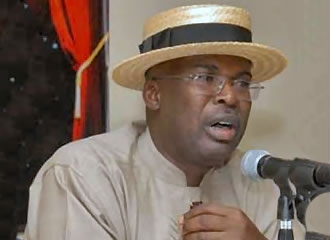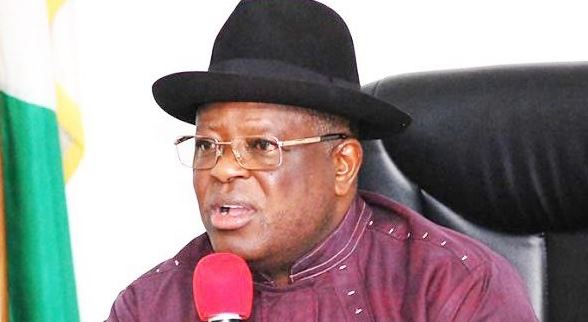The Ondo State House of Assembly has affirmed that the ongoing impeachment process against the deputy governor, Mr Lucky Aiyedatiwa has not been suspended as earlier reported in the media.
The Chairman, of the House Committee on Information, Mr Olatunji Oshati, on Friday, told a journalist that the House had halted the impeachment process after the state Chief Judge, Justice Olusegun Odusola, had communicated to it his inability to constitute a panel to investigate the allegation against the deputy governor, following a court order.
He said, “We have considered the letter (of the CJ) which is everywhere in the public domain and we are halting the impeachment process until the order of the Federal High Court is vacated.
“It is not about being arrogant with power, it is about holding public officers accountable. It also shows that the process of impeachment transcends the monopoly of the legislature as we can see that the judiciary has stalled it.”
However, the House, through its lawyer, Mr Femi Emodamori, stated again that it had not suspended the process, saying it would pursue it to a logical conclusion.
This was contained in a statement issued by the legal practitioner on behalf of the Assembly, on Saturday.
The statement partly reads, “Impeachment is a constitutional process clearly outlined in section 188 (1)-(11) of the Constitution of the Federal Republic of Nigeria, 1999 (as amended), and our Client has meticulously complied with all the stages leading up to the obligation placed on the state chief judge to set up a 7-man panel to investigate the allegations, as stipulated in Section 188(5) of the Constitution.
“The notice of allegations of gross misconduct was signed by 11 members of the House and presented to its speaker on 20th September, 2023 in strict compliance with Section 188(2) of the Constitution, which requires at least one-third of the 26 House members to sign and present the notice to the speaker. That is the first stage in the impeachment process.
“The speaker, in turn, served the notice on the deputy governor on 25th September 2023 and also caused same to be served on all the other members of the House, in strict compliance with the same Section 188(2) of the Constitution which requires him to do so within seven days. That was the second stage.
“The third stage, as stated in Section 188(3) of the Constitution, requires a two-third majority of the members to pass a motion within 14 days after the notice of allegation(s) of gross misconduct was first presented to the speaker, for the investigation of the allegation (s) and request the state chief judge to set up the 7-man panel to investigate same.
“Our client meticulously complied with the said Section 188(3) of the Constitution. 23 out of its 26 members (more than the minimum two-third majority required) passed that motion on the 3rd of October, 2023. Section 188(5) of the Constitution further states that after the motion is passed by the two-third majority, the speaker should formally request the state Chief Judge to set up the seven-man panel.
It added, “The speaker diligently complied with this on the same 3rd October when the motion was passed. It was at this stage that His Lordship, the Honourable Chief Judge of Ondo State, replied to the House, stating that he received an ex parte Order which the deputy governor secured from the Abuja Judicial Division of the Federal High Court on 26th September 2023, ‘restraining’ his lordship from setting up the panel, pending when the court would hear all the parties in the case to determine the merit of the application or the case filed by the deputy governor.
“For the avoidance of doubt, Section 188(10) of the Constitution clearly states that The proceedings or determination of the House or Panel or any matter relating to such proceedings or determination shall not be questioned or entertained in any court”, and there are too many judgments of the highest courts in Nigeria affirming that no court has the jurisdiction to dabble into an impeachment process, as long as the House of Assembly complies with all the constitutional process.”
“The Honourable Chief Judge himself stated in his widely reported reply to my client, that his lordship was not unmindful of the above provisions of Section 188(10) of the Constitution and even quoted it verbatim.
“His lordship however stated that as a Chief Judge, he would prefer that the ex parte order, which his lordship believes ‘tied his hand’, should first be vacated or set aside. The chief judge prefers to err on the side of caution.”
The statement further stated that the position of the Assembly was that, despite their reservations about in the face of the provisions of “Section 188(10) of the Constitution and the judgments of the appellate courts stating that no court has the power to question or entertain any matter relating to the impeachment, they would, for now, show sufficient understanding of the delicate position the Hon. Chief Judge has found himself, by promptly taking the necessary legal steps to vacate or quash the order and/or the entire suit at the Federal High Court, to untie the hands of his lordship and proceed with the impeachment to a logical conclusion.”











